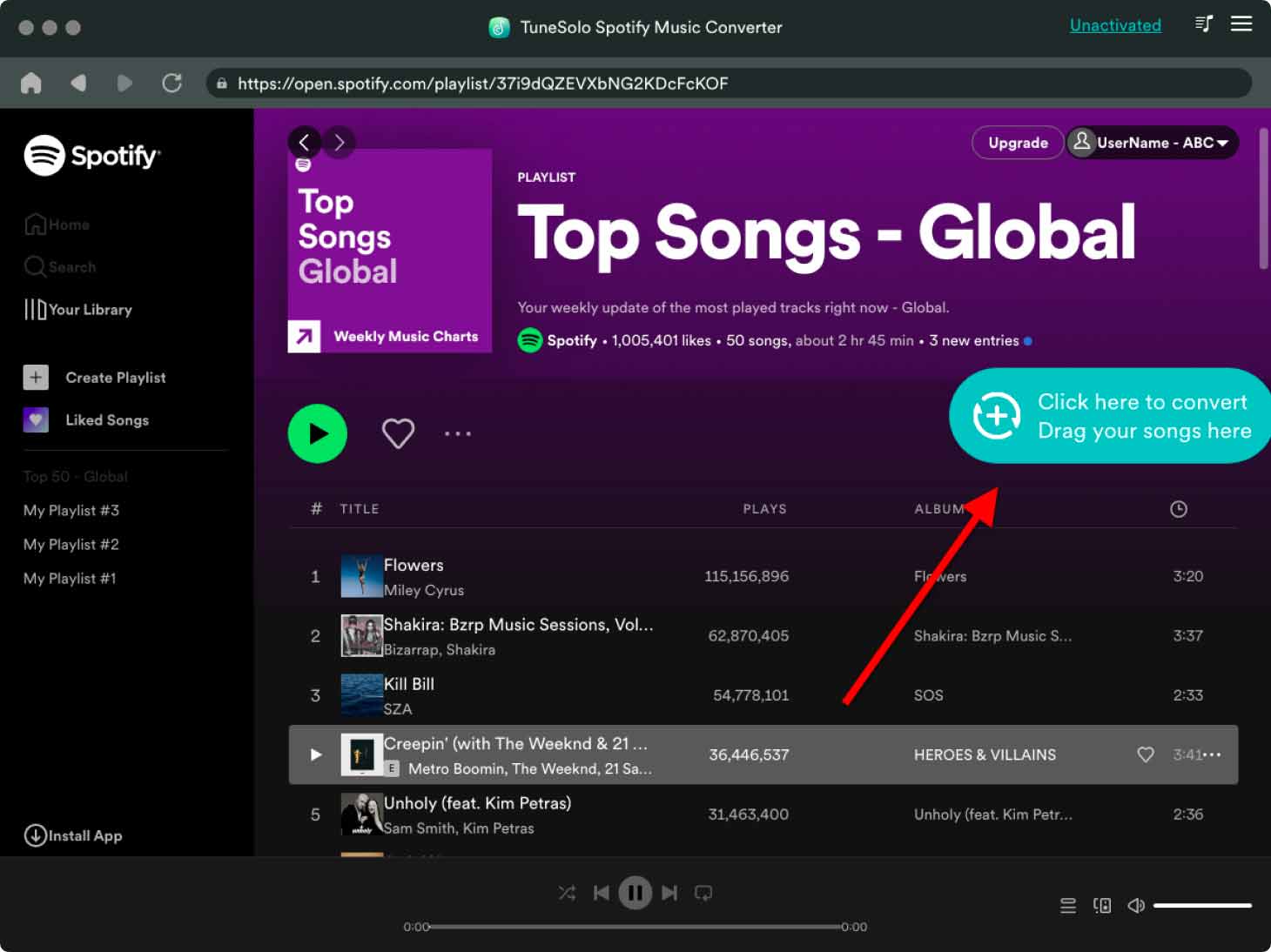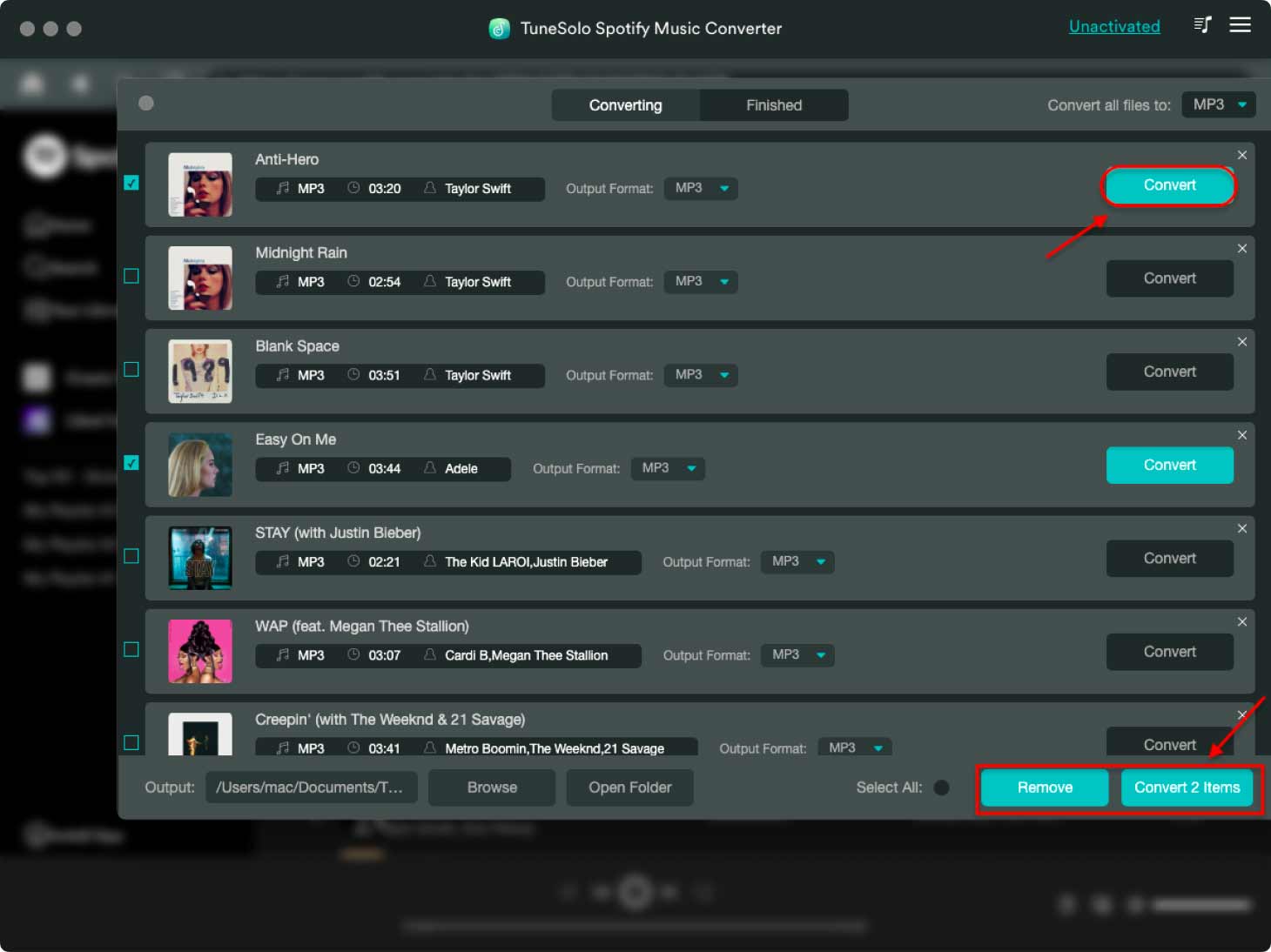Analyze Your Spotify Pie Chart: Unveiling Music Tastes
Spotify has revolutionized the way we listen to music, providing us with an extensive library of songs at our fingertips. One tool that has caught the attention of many users is the Spotify Pie Chart, a visual representation of their music tastes.
With its vibrant colors and intriguing breakdown, the pie chart offers a unique glimpse into our listening habits and preferences. In this article, we will explore the significance of the Spotify pie chart and delve into how it can shed light on your musical inclinations. Whether you're a casual listener or a devoted music enthusiast, get ready to uncover the secrets hidden within your personalized Spotify pie chart.
Article Content Part 1. What is Spotify Pie Chart? Is It Safe?Part 2. How to Make Your Spotify Pie Chart Using the "Spotify Pie" Tool?Part 3. How to See and Create Your Spotify Pie Chart in Spotify?Part 4. Are There Any Other Tools to Check Your Spotify Listening Statistics?Bonus Tips: How to Keep Your Favorite Spotify Songs, Albums, and Playlist ForeverConclusion
Part 1. What is Spotify Pie Chart? Is It Safe?
The pie chart isn't a built-in feature of Spotify; it's a web tool developed by Darren Wong, a student at UCLA. The Spotify pie chart is a graphical representation that showcases the distribution of genres or artists in your personal music library. It provides users with a visual breakdown of their listening habits, allowing them to see the proportions of different genres or artists they frequently listen to.
The pie chart is generated based on the data collected by Spotify, which includes the songs, albums, and playlists you have saved or streamed. Spotify's algorithms analyze this data to categorize your listening preferences and create the pie chart accordingly.
As for the safety of the Spotify pie chart, it is important to note that the chart itself is simply a visualization of your own listening habits and does not pose any direct security risks. It is generated using the data that Spotify collects from your account, which is subject to Spotify's privacy policies and data protection measures.

However, it's always recommended to review and understand the privacy policies of any platform or service you use. Spotify has implemented measures to safeguard user data and provide transparency in how they handle personal information. By default, your listening data is private, and you have control over the visibility of your activity and the ability to manage your privacy settings.
It's worth mentioning that the Spotify pie chart does not reveal any personally identifiable information about you, such as your name, address, or other sensitive details. It focuses solely on your music preferences and presents them in an engaging visual format.
Part 2. How to Make Your Spotify Pie Chart Using the "Spotify Pie" Tool?
Making your own Spotify music pie chart is easy, all you need to do is open this tool's website on your computer or on your phone, log into your account (allowing it to access your Spotify data), and see the Spotify Pie Chart that includes your top music genres and the top artists.

Part 3. How to See and Create Your Spotify Pie Chart in Spotify?
If you're curious to explore your own Spotify pie chart and gain insights into your music preferences, here's how you can see and create one:
- Open the Spotify App: Launch the Spotify app on your device. Ensure that you’re signed in to your Spotify account.
- Navigate to Your Library: Tap on the “Library” tab located at the bottom of the screen. This will take you to your personal library, where all your saved music, playlists, and albums are stored.
- Access the Made for You Section: Scroll down until you find the “Made for You” section. Within this section, you’ll discover various personalized features and playlists tailored to your music taste.
- Explore Your Playlists: The Spotify pie chart can be found within playlists like “On Repeat” or “Top Songs.” These playlists are generated based on your recent listening activity and most frequently played tracks.
- Tap on the Playlist: Select either the “On Repeat” or “Top Songs” playlist to open it. You’ll notice that the cover art for these playlists is a circular pie chart.
- Analyze Your Spotify Pie Chart: Once the playlist is open, you’ll be presented with your Spotify pie chart. Take a moment to explore the different sections or slices of the chart, each representing a specific genre or artist you frequently listen to.

By following these steps, you can access and examine your Spotify pie chart, gaining valuable insights into your music preferences and discovering the genres or artists that dominate your listening habits.
It's important to note that the Spotify pie chart may change over time as your listening habits evolve and new tracks are added to your library. Therefore, it can be an interesting tool to track your musical journey and observe any shifts in your taste.
Part 4. Are There Any Other Tools to Check Your Spotify Listening Statistics?
While the Spotify pie chart offers a fascinating glimpse into your music preferences, there are also other tools available that can provide more comprehensive insights into your Spotify listening statistics. Let's explore a few popular options:
Spotify Wrapped
Spotify Wrapped is an annual feature that provides users with a detailed summary of their listening habits throughout the year. It offers a personalized recap of your top artists, songs, genres, and listening minutes. Additionally, it highlights your most streamed tracks during specific seasons and generates shareable infographics to showcase your music taste.

Soundiiz
Soundiiz is a versatile music management tool that allows you to transfer and synchronize playlists across different streaming platforms, including Spotify. In addition to its playlist management capabilities, Soundiiz provides insights into your listening statistics. It offers detailed analytics on your most streamed tracks, artists, and albums, helping you gain a comprehensive understanding of your music preferences.
Last.fm
Last.fm is a music tracking service that integrates with Spotify and various other music streaming platforms. It records and analyzes your listening history across different devices and provides detailed statistics on your most played tracks, top artists, and favorite genres. Last.fm also offers personalized recommendations based on your listening habits and connects you with a community of music enthusiasts.

These tools go beyond the Spotify pie chart, offering a broader view of your listening habits, top tracks, and favorite genres. They can be particularly useful for those who want to explore their music taste over a longer period or compare their statistics across multiple streaming platforms.
By utilizing these tools, you can dive deeper into your Spotify listening statistics, discover new artists and genres, and gain a better understanding of your musical preferences. Whether it's Spotify Wrapped, Last.fm, or Soundiiz, each tool adds its unique features and insights to enrich your music discovery experience.
Bonus Tips: How to Keep Your Favorite Spotify Songs, Albums, and Playlist Forever
While Spotify provides an extensive library of music, it's important to note that the songs and playlists you save are subject to availability and licensing agreements. However, there are tools available, such as TuneSolo Spotify Music Converter, that allow you to keep your favorite Spotify songs, albums, and playlists permanently.
Here are some easy steps to get started:
- Download and Install TuneSolo Spotify Music Converter for free: Begin by downloading and installing TuneSolo Spotify Music Converter on your computer. It’s compatible with both Windows and Mac operating systems.
- Launch the Converter and Log in to Spotify: Open TuneSolo Spotify Music Converter and click Open Spotify Web Player. This ensures that the converter can access Spotify.
- Add Spotify Songs, Albums, or Playlists: In TuneSolo Spotify Music Converter, you can add songs, albums, or playlists that you wish to keep permanently. You can manually search and add individual songs or import entire playlists with just a few clicks.

- Customize Output Settings: Before converting your Spotify music, you can customize the output settings. Choose the desired output format (such as MP3, FLAC, or WAV) and select the output quality according to your preference. Choose a folder where the files will be saved.
- Start the Conversion Process: Once you’ve added the desired music, click on the “Convert” button to initiate the conversion process. TuneSolo Spotify Music Converter will convert the selected Spotify tracks into the chosen output format.
- Access Your Converted Music: Once the conversion is complete, you can find your converted Spotify songs, albums, or playlists in the designated output folder on your computer. From there, you can transfer them to any device or media player for offline listening without any limitations.

By using TuneSolo Spotify Music Converter, you can preserve your favorite Spotify music and enjoy it indefinitely, even if it becomes unavailable on the streaming platform. However, it's important to note that you should only use such tools for personal use and adhere to copyright laws and licensing agreements.
Always remember to respect artists' rights and support them by streaming music through legal and authorized platforms whenever possible.
Conclusion
The Spotify pie chart serves as an engaging visual representation of your music preferences, offering a colorful glimpse into the genres and artists that dominate your listening habits. It provides a unique way to explore and understand your musical inclinations, uncovering patterns and trends that may surprise you.
While the Spotify pie chart is just one facet of understanding your music taste, it can be complemented by other tools like Spotify Wrapped, Last.fm, and Soundiiz, which offer more comprehensive insights into your Spotify listening statistics. These tools provide a deeper understanding of your top tracks, favorite artists, and most streamed genres, allowing you to dive further into your musical journey.
In addition, we talked about a bonus tip. TuneSolo Spotify Music Converter is a software tool that allows users to convert and download Spotify songs, albums, and playlists for offline listening. It is designed to help users keep their favorite Spotify music permanently, even if it becomes unavailable on the streaming platform.